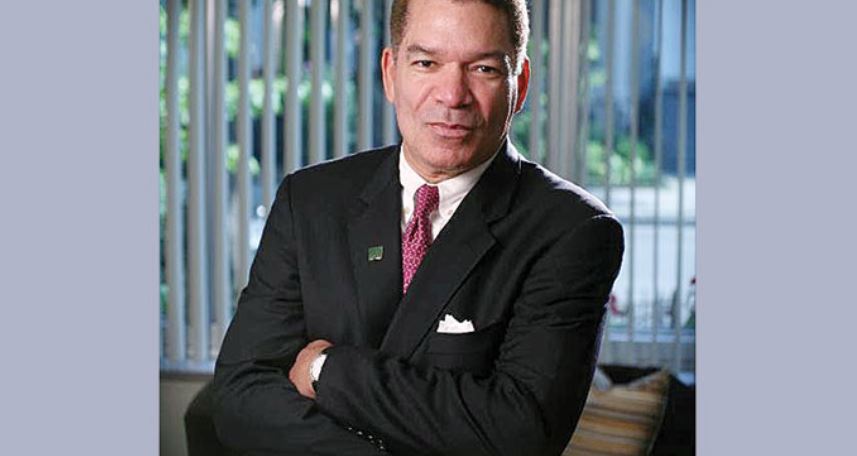
Despite apology from Wells Fargo CEO, African Americans still face ‘uphill battle’ for respect
by Kaylan Ware
On September 23, Wells Fargo CEO Charles Scharf apologized in a letter to his employees for comments made in a June 16 memo titled “Our commitment to change.”
“While it might sound like an excuse, the unfortunate reality is that there is a very limited pool of Black talent to recruit from with this specific experience,” Scharf said in the June 16 memo.
He also repeated this sentiment during a company Zoom meeting. In the same memo, Scharf proposed to double the number of Black senior leaders by 2025.
Former President of the National Bankers Association Michael Grant acknowledges the systemic racism that influences this lack of diversity and attention to diverse talent in the financial services industry.
“I think that African Americans have a very difficult uphill battle to try to be respected and to be placed in positions from which we are qualified,” Grant said. “When I read the statement from [Scharf], I knew right away where that was coming from. When these folks talk about ‘They can’t find qualified candidates,’ what they’re really telling you is that they haven’t looked very hard. Because if you look hard enough, you have qualified African Americans in every industry all over this country.”
Scharf’s statement came in the midst of heightened racial tension and tragedy following multiple police killings and acts of brutality against Black people.
“I apologize for making an insensitive comment reflecting my own conscious bias,” Scharf wrote in a letter to employees. “There are many talented diverse individuals working at Wells Fargo and throughout the financial services industry and I never meant to imply otherwise.”
This incident also provoked responses from U.S. lawmakers including Sen. Elizabeth Warren (D-MA), Sen. Sherrod Brown (D-OH) and Rep. Ayanna Pressley (D-MA).
“Wells Fargo is badly broken in multiple ways and that starts at the top,” Warren said to Business Insider. “Its CEO has an unfathomable blind spot about how and why this giant bank fails to hire, promote and fairly compensate Black talent—and continues to be a core part of a financial system that scams Black families disproportionately and duels structural racism in our economy and our society.”
Scharf’s September 2019 appointment came during a time of necessary image repair as the company’s reputation has been tarnished by scandals of fraudulent accounts, discrimination and overcharging.
He dedicated this apology to reinforcing the company’s commitment to improve diversity and inclusion. His letter listed efforts including reaching out to diverse talent, anti-racism training courses, senior leader accountability, executive compensation, and he expanded on how each of these would be achieved.
“Six months from today, let’s see what actually is produced,” Grant said. “You know, oftentimes, folks talk about what they’re going to do, what they’re going to institute —this policy or they’re going to do that practice. We should take a wait and see attitude about any of these folks’ promises. I’m not interested in what [Scharf] says, I’m interested in what he does.”
Scharf reflected on the changes Wells Fargo has made in an effort to increase diversity. The company hired Lester Owens as head of Operations, a new position responsible for building a more unified, integrated approach to Wells Fargo’s business operations functions. Owens is one of four Black faces Scharf mentioned that the company recently hired or promoted internally.
In light of recent events, banks and financial institutions are increasingly being confronted for their lack of diversity on every level.
“Wells Fargo is not the only culprit here,” Grant said. “This is a problem that permeates financial institutions. It permeates Wall Street. Wells Fargo is the face of that behavior, but it’s not the only actor.”
From 2015-2018, race and ethnicity trends of financial institution employees showed little movement. White employees made up approximately 60 percent of the workforce during this four year period, according to the U.S. House Committee on Financial Services.
“This country is big enough, and rich enough, and should be intelligent enough to embrace diversity as a cause for celebration,” Grant said. “Diversity makes America work. It is what caused this country to be unique throughout the history of the world—E pluribus Unum.”
Scharf acknowledged that the financial services industry has not taken serious measures to improve diversity at all levels, especially senior leadership. His proposal to tie executive compensation to company diversity encourages senior leaders to actively work on increasing representation and inclusion.
“[Financial institutions] still seem to be more attuned to the good old boys network than they are into opening the doors of opportunity for Blacks and Hispanics and women, and others who have been historically left out,” Grant said. “To embrace diversity is a pull for creativity. The more you get different types of backgrounds and life experiences in your organization, the more perspective you’ll have for the needs of the customers.”
Appeared first in New Pittsburgh Courier
Sorry, the comment form is closed at this time.
